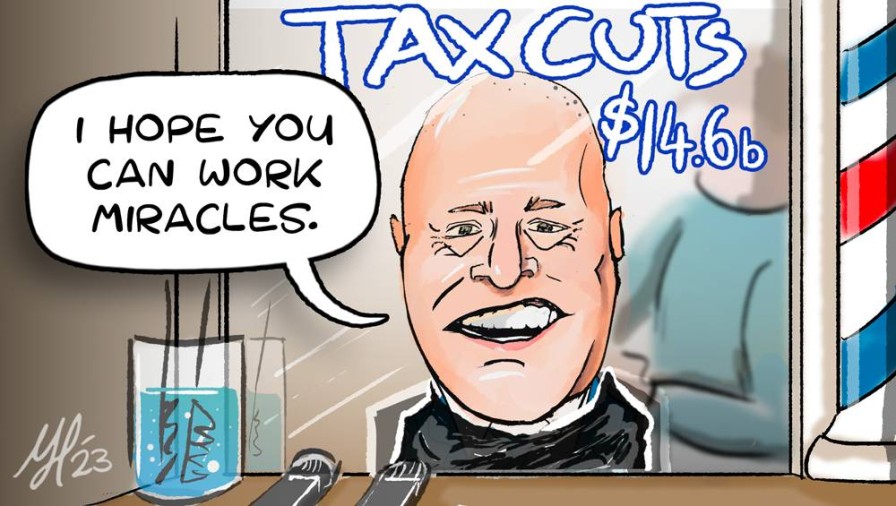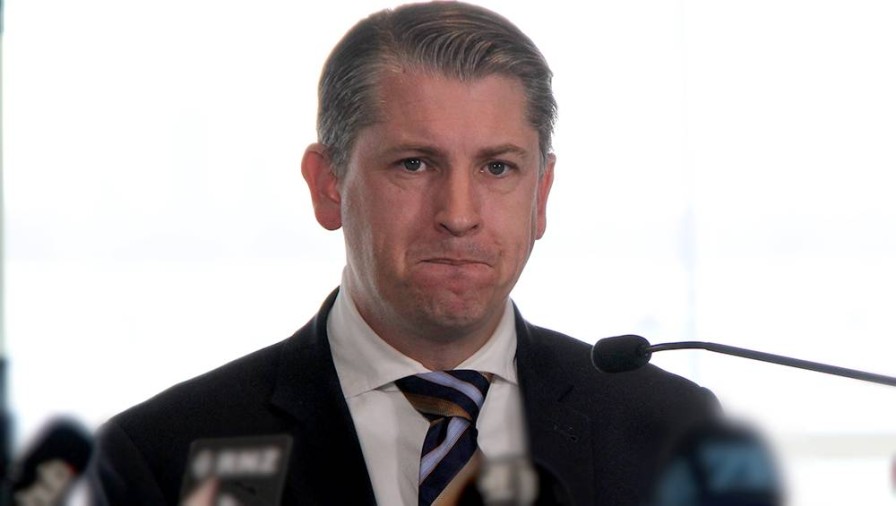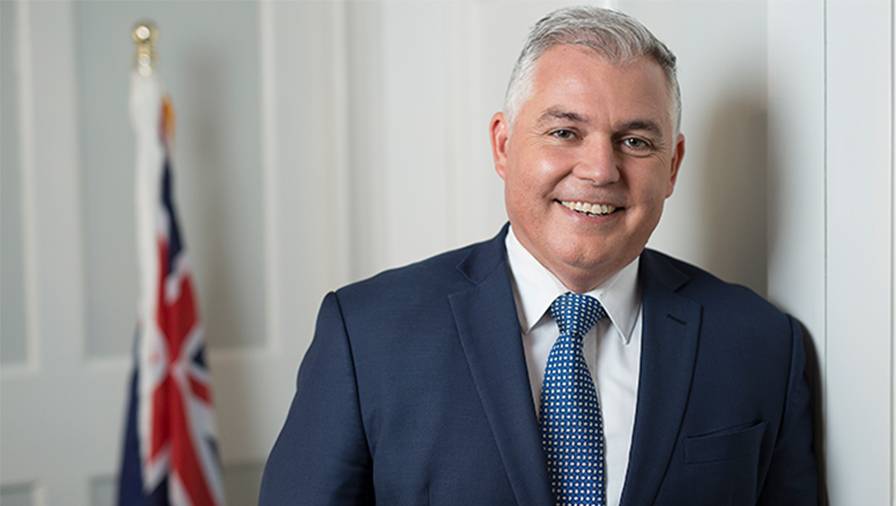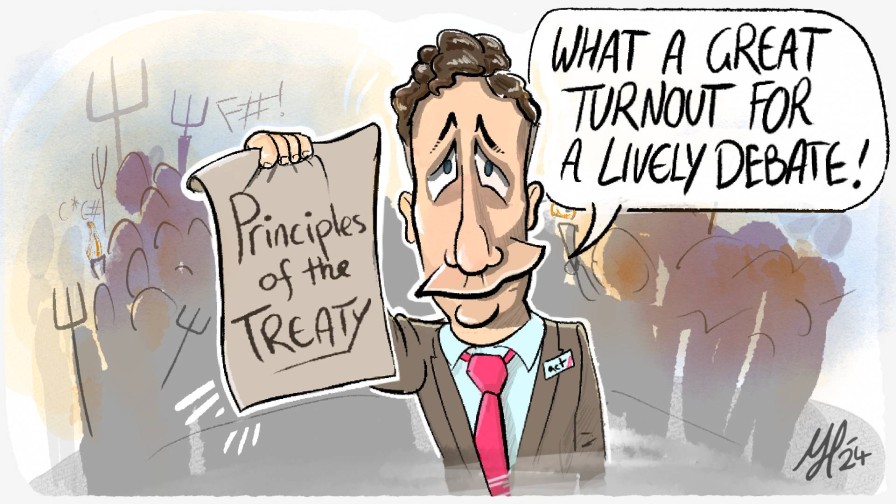Tax, Treaty principles, James Shaw, spending cuts
ANALYSIS: The Government is likely to face robust debate at Waitangi.
WATCH: NBR political editor Brent Edwards speaks with Grant Walker.
ANALYSIS: The Government is likely to face robust debate at Waitangi.
WATCH: NBR political editor Brent Edwards speaks with Grant Walker.
Act Party leader David Seymour is again pushing for his party’s tax plan to be adopted as the Coalition Government works on its first Budget.
Seymour told RNZ this week that he wanted the Government to make a flatter, simpler tax system the centrepiece of the Budget.
Finance Minister Nicola Willis is working on a tax package to incorporate National’s policy of tax income thresholds, but National did agree in its coalition deal with Act to ensure the smaller party’s income tax policy is considered as a pathway to delivering National’s tax cuts.
Act’s plan would reduce the current five tax rates to three. That includes scrapping the current 10.5% rate for income up to $14,000 a year and instead having a 17.5% rate applying to all income up to $70,000. A 30% rate would then apply to the $70,000 to $180,000 income bracket, with a top rate of 33% for the very high earners. This would be phased in over time, as the fiscal situation allowed.
Lower-income earners would be worse off, but Act proposed a tax credit for low and middle-income earners to make up for that.
Whether the Government will be able to do any of this – given it keeps complaining about the fiscal problems it faces – is debatable. As it is, it is unlikely to be able to deliver on all of National’s policy. But both Seymour and Willis say the Treasury is working on what is achievable and what is not, and Willis continues to promise that tax cuts – however they are structured – will be the centrepiece of the May Budget.

The Government is promising tax cuts will be the centrepiece of this year’s Budget. Illustration: Michael Hickmott
Meanwhile, NBR presenter Grant Walker asks why Seymour has been given delegated responsibility for the Treaty of Waitangi Principles Bill. Is it to distance Prime Minister Christopher Luxon from the contentious proposal? Probably.
But it also makes sense that Seymour shepherds the bill through Parliament and to a select committee, given it is an Act initiative that it negotiated as part of its coalition agreement with National. His appointment will, though, allow Luxon to continue to describe the proposal as one being pushed by Act, not supported by National.
At the same time, this week Green Party co-leader James Shaw announced his resignation, saying it was time for another person to take on the role. He will remain in Parliament for a few months yet, while his member’s bill – the Bill of Rights (Right to Sustainable Environment) – goes through the parliamentary process.
Despite criticism from some within the Green Party, Shaw has achieved more on climate change policy than any previous Green MP. As Climate Change Minister from 2017 to 2023 he was responsible for the Zero Carbon Act, which has set up the framework for the Government to cut greenhouse gas emissions.
As former United Future leader and government minister Peter Dunne noted: “If success in politics is measured by practical achievements rather than the volume of noise made, James Shaw has been the Greens’ most successful politician yet.”
Shaw sought compromise – even though he was frustrated by the slow pace of change – in order to get broad political support for the Zero Carbon Act, which set up the Climate Change Commission and committed New Zealand to the Paris Agreement targets.
In announcing his resignation, he said he was proud of what he achieved and gratified that the legislation had survived its first change of government.

James Shaw resigned as Green Party co-leader this week.
Now all eyes are on who might replace him. His most likely successor is Auckland Central MP Chlöe Swarbrick but anyone from within the party, including those outside Parliament, can put their name forward to contest the position.
But what’s next for James Shaw? Walker wonders whether he could possibly replace Dr Rod Carr as chair of the Climate Change Commission when Carr’s five-year term ends late this year. Possible but unlikely. It has not been seen as a political position, with the commission set up as an independent body.
Whatever he does, it is likely Shaw will remain involved in climate change-related initiatives and certainly Prime Minister Christopher Luxon and Climate Change Minister Simon Watts value his contribution.
At the same time, Walker also questions whether Shaw’s resignation might have a negative impact on the Greens’ vote at the next election. As co-leader, Shaw – for the same reason he provoked opposition from more radical Green Party members – did attract support from more centrist voters worried about climate and the environment but perhaps not as enamoured with the Green’s Party social and economic policies.
It is impossible to know how many voted for the Greens last year – when the party won a historic high vote even if it got turfed out of government – because of Shaw. More likely many of those extra votes were won off Labour as centre-left voters became frustrated by what they saw as Labour’s reluctance to introduce more progressive taxes and boost welfare.
Talking of Labour, it has appointed a new policy council, which includes Council of Trade Unions economist Craig Renney and former minister Michael Wood. Is this a signal Wood, who got into difficulties last year over his failure to fully declare his pecuniary interests, could make a political comeback?
While Wood lost his ministerial position he did stand again as a candidate in last year’s election and is now only out of Parliament because he failed to hold on to his Mt Roskill seat. Labour insiders always saw him as continuing to have a political role and his appointment to the policy council confirms that, within the party, he continues to be held in high regard. Do not rule him out coming back to Parliament when Labour’s fortunes begin to rise again.

Former Labour minister and MP Michael Wood.
Labour too is attacking the Government over its planned cuts to public services after Willis acknowledged that front-line services could also be cut as part of the coalition’s drive to save costs. But Willis told Radio New Zealand that government department chief executives were expected to use “good judgement” when proposing cuts and the Cabinet would not necessarily agree to them.
But the language is different from before the election, when National promised front-line services were off limits.
Labour’s public services spokesperson Ayesha Verrall also argues that even cuts to back-office services could affect front-line services if it means front-line staff have to spend their time doing back-office work.
Parliament resumed this week and while there weren’t necessarily fireworks, the Government faced the embarrassment of three ministers – including the Prime Minister – having to correct their answers in the House on the same day.
In one case, Police Minister Mark Mitchell told MPs the Government’s target of training an additional 500 police officers would happen over the full term of three years, not two years as set out in the coalition agreement with New Zealand First.
It prompted a series of meetings between the two coalition partners, an admonishment from Luxon, and an embarrassing reversal from Mitchell the next day when he told Parliament he had been wrong, and it was still the intention to do it within two years.

Police Minister Mark Mitchell is one of three ministers who had to correct answers given to Parliament.
Parliament does not sit next week, with all the focus on Waitangi over the weekend. It is likely Government ministers will get a clear message at Waitangi about its plans for the Treaty Principles Bill.
Luxon just might refer those concerns on to the minister with delegated responsibility for the legislation.
Seymour, who did not attend the national hui at Tūrangawaewae or the Rātana celebrations, is expecting robust debate.

Illustration: Michael Hickmott
Brent Edwards is NBR’s political editor.